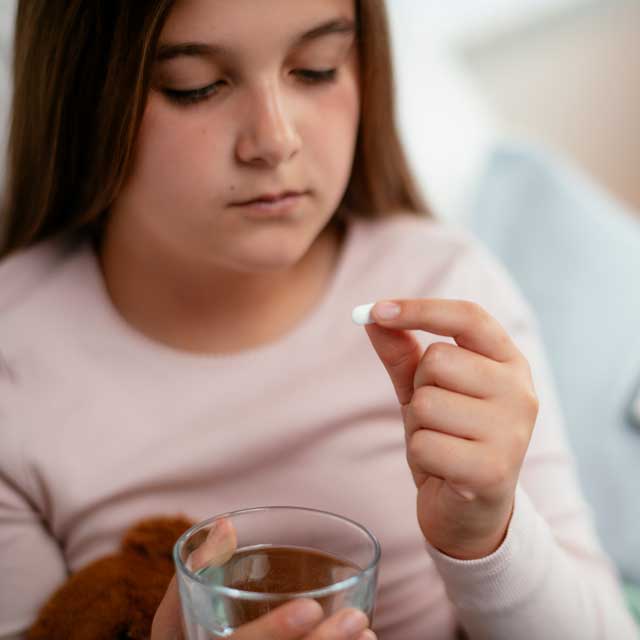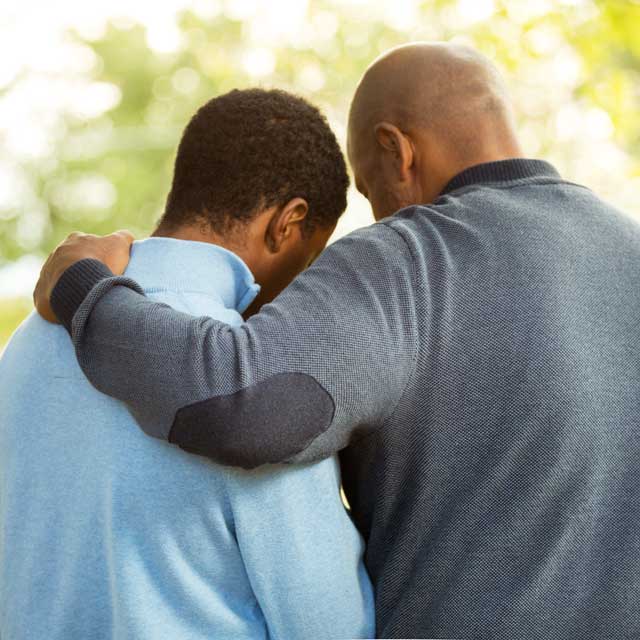Depression and anxiety can appear differently in older adults, especially when other physical conditions are in the mix.
As people age, some changes in disposition may seem common. However, they may not be a normal part of aging. Physical conditions and cognitive decline can make it difficult to diagnose depression and anxiety. We’re sharing some takeaways from a conversation with Vanderbilt mental health experts to help older adults who may be struggling with their own mental health — or those who may be trying to help a loved one in need.
To listen to the conversation in full, be sure to tune into Episode 28 of the Vanderbilt Health Affiliated Network’s miniVHAN podcast, and then follow along for more episodes on mental health.
How does depression and anxiety manifest differently across the stages of adulthood, especially in the geriatric population?
“Generally, for depression in all ages, we use the DSM-5 diagnostic criteria. This means symptoms must last for two weeks along with changes in sleep, decreased interests, feelings of guilt and decreased interest. As people get older, depression may present more as isolation and hopelessness,” said Dr. Jason Greenhagen, a Vanderbilt geriatric psychiatrist. “Often, they have given up because they’ve tried many things to help fix their situation or how they’re feeling, and it’s not working.”
What are some of the challenges in diagnosing depression and anxiety in older adults? Are there potential overlapping symptoms with other medical conditions or other cognitive changes?
“Some medical conditions, like thyroid dysfunction, heart problems and chronic obstructive pulmonary disease, can often mimic or mask psychiatric conditions,” Greenhagen said. “Another is cognitive decline. We’re finding that new onset of depression or anxiety may be the first sign of some types of cognitive decline in people, even before the memory impairment shows. So, behavioral changes are important to notice.”
Are there certain preventative measures or interventions that are helpful for addressing depression and anxiety in an older population?
“The biggest thing we can do is screen for it. If we don’t look for it and are not aware of it, then a lot of times it will just pass by. Many times, especially in the geriatric population, they feel that they don’t want to be a burden and won’t bring up that they’re feeling unhappy,” Greenhagen said. “So, it is important to ask those questions and give them time to answer genuinely about how they’re feeling.”
Are there different types of challenges in having conversations with patients, especially if there are other cognitive conditions in the mix?
“Again, the older adult population doesn’t want to feel like a burden. It is important to let them know how they are feeling is not a normal part of aging. Many think they’re just sad because they are getting older, but we find that their overall happiness increases as they get older,” Greenhagen said.
“If there are caregivers or family members involved in care, it helps for them to know warning signs and what to watch for in their loved one. They can also help inform what is normal for them and what behaviors have changed, which is important.”
What can best support older adults who are struggling with depression and anxiety?
“Collaborative care is always the best possible treatment. Open conversations between the primary care provider and mental health provider are important. People will present differently in different situations, and they may be more open to telling one doctor more than the other,” Greenhagen said.
“There are also a lot of resources and community support for older adults, which can be very helpful. If people isolate, it is going to make the symptoms worse. It is important for them to get out into the community and socialize. The biggest thing is that they continue to have a purpose in life. It is a very human thing to crave a place in this world. It is important that they still have that drive and something that they want to do in their life.”

More on mental health
The miniVHAN podcast is brought to you by Vanderbilt Health Affiliated Network, a clinically integrated network of physicians, nurses and allied professionals across Tennessee and surrounding states who are transforming health care and strengthening communities.
The latest season of the miniVHAN podcast delves into mental health across the lifespan – and how physical, mental and emotional health are all interconnected.




